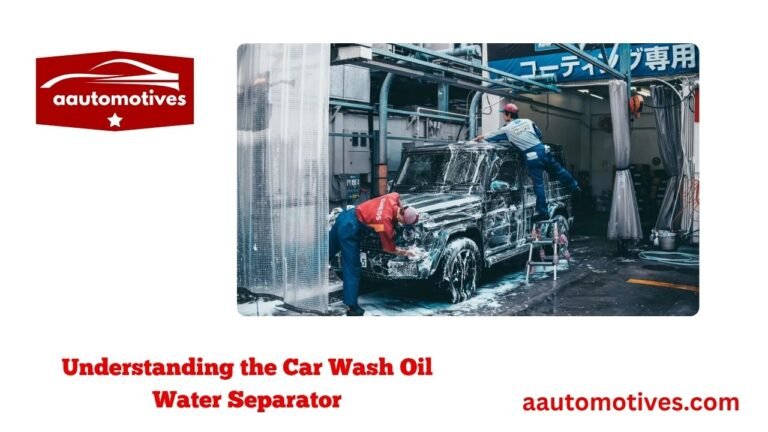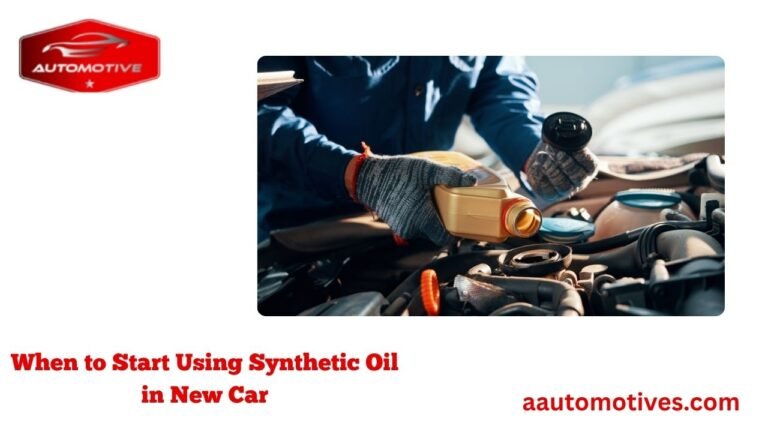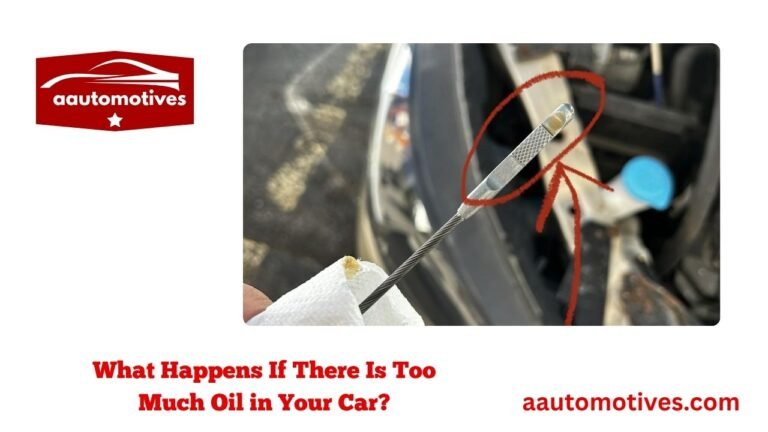Halfords Which Oil for My Car

Ever stood in the car oil aisle, staring blankly at rows of bottles, wondering which one your engine’s begging for? You’re not alone. Choosing the right engine oil can feel like solving a mystery—especially with so many numbers, letters, and brands. That’s where Halfords comes in. But even with their shelves stocked and tools ready, you may still find yourself googling, “Halfords which oil for my car?”
Let’s break it down in the simplest, friendliest way possible—no jargon, no fluff. Just real advice, straight from one car owner to another. I’ve been through it too, and after learning the ropes (and making a few mistakes), I’ve got some insights to share.
Whether you drive a diesel, hybrid, or old-school petrol beauty, this guide will help you pick the perfect oil at Halfords—without the stress. So, buckle up. We’re diving deep into what your car engine truly needs.
Why Engine Oil Is More Than Just a Lubricant
Think of engine oil as the lifeblood of your car. It’s not just there to make things slippery.
Here’s what your engine oil actually does:
- Reduces friction between moving parts
- Cools the engine by carrying heat away
- Prevents corrosion and sludge buildup
- Cleans debris and microscopic metal shavings
- Improves fuel efficiency and longevity
If you choose the wrong oil, it’s like feeding your pet the wrong food—it may work for a while, but problems will show up.
So when you ask, “Halfords which oil for my car?”, you’re not just being cautious—you’re being smart.
Understanding Engine Oil Grades Without the Headache
Ever seen numbers like 5W-30 or 10W-40 on oil bottles and wondered if it’s some sort of secret code? Well, you’re not far off. But don’t worry—it’s easier than it looks.
Here’s a table that makes it simpler:
| Oil Grade | What It Means | Best For |
|---|---|---|
| 0W-20 | Super thin, great cold starts | Hybrids, fuel-efficient engines |
| 5W-30 | Versatile, popular choice | Most modern petrol/diesel cars |
| 10W-40 | Thicker, older engines | Older cars or hot climates |
| 5W-40 | High performance | Turbo engines, long motorway drives |
| 15W-40 | Heavy-duty | Commercial vehicles, trucks |
W stands for winter, and the number before it is how it performs in cold. The second number? That’s how it behaves when hot.
At Halfords, their oil picker tool online or in-store assistant can help decode this—but knowing what you’re looking at already gives you an edge.
How to Use the Halfords Oil Finder Tool (And Why It Works)
So, you’ve parked outside Halfords or browsed their website. You’re now asking, “What next?”
Here’s how to use the Halfords oil checker:
- Visit the Halfords website.
- Go to the “Which oil for my car?” section.
- Enter your registration number or car make, model, and year.
- The tool instantly shows you the recommended engine oil.
- You can even filter by brand, price, and performance level.
It’s literally that easy. I remember the first time I used it—I felt like I’d unlocked a cheat code.
So next time someone says, “I never know which oil to get,” tell them to just hit up the Halfords oil finder. It’s a game-changer.
What Happens If You Use the Wrong Oil? A Cautionary Tale
Let me tell you a quick story. A mate of mine—let’s call him Rob—once poured 15W-40 oil into his 2019 Ford Fiesta. A few weeks later, his engine was rough, cold starts were shaky, and he ended up with a £700 garage bill. Why? The oil was too thick. His engine was basically choking.
Using the wrong oil can:
- Clog oil passages
- Reduce lubrication
- Increase engine wear
- Hurt fuel economy
- Trigger warning lights
So, when people ask, “Halfords which oil for my car?”, they’re not just nitpicking—they’re avoiding big headaches. And expensive bills.
Synthetic, Semi-Synthetic, or Mineral Oil? Decoding the Choices
You’ll see these three terms everywhere. Here’s what they mean:
- Mineral Oil: Basic, budget-friendly, but not ideal for modern engines.
- Semi-Synthetic: A blend of mineral and synthetic—more stable, decent for most cars.
- Fully Synthetic: High-performance, long-lasting, best for newer engines or frequent drivers.
If you drive daily, want fuel economy, and care about your car’s health, go fully synthetic. At Halfords, you’ll find all three—but their staff usually recommend Castrol EDGE or Mobil 1 for synthetic excellence.
And yes, it costs more—but your engine will thank you in the long run.
Top Recommended Engine Oil Brands at Halfords
Halfords stocks a wide range, but a few stand out because they’ve been tested on tracks, roads, and motorways.
Here are the top dogs:
- Castrol – Excellent for performance and long-drives
- Mobil 1 – Great for premium vehicles
- Shell Helix – Smooth operation, especially in warmer climates
- Comma – Budget-friendly and dependable
- Halfords Own Brand – Surprisingly good for the price
Depending on your car and budget, you’ll likely find your match here. Again, the Halfords oil checker can help you sort this in minutes.
Signs You’re Using the Wrong Oil – And When to Change It
Sometimes your car gives you hints that something’s off. Listen closely.
Watch for:
- Engine knocking or ticking sounds
- Oil warning lights on dashboard
- Poor fuel economy
- Sluggish performance
- Dirty or thick oil on dipstick
If you’re noticing any of these, a quick trip to Halfords might be the reset button you need.
I once ignored these signs for a month—my oil looked like tar. The result? £250 for a forced flush and new filter. Never again.
Real Talk: What I Learned from Asking Halfords Staff
I’ll be honest—before I got the hang of it, walking into Halfords felt like being a fish out of water. Bright lights, shelves full of oil bottles, and techy posters everywhere. The first time, I mumbled something like, “I think I need oil?” A kind bloke named Mark walked me through it step-by-step.
He asked for my car’s reg plate, typed it into the system, and within 30 seconds, he pointed to the exact oil type and brand I needed. That personal touch matters.
The Halfords team won’t just shove a bottle in your hand—they’ll explain why 5W-30 works better than 10W-40 for your engine, how synthetic lasts longer, and even how to check your oil levels with a dipstick. That saved me from a lot of guesswork. If you’re ever unsure, don’t be shy—they’re there to help, not to sell.
Buying Oil Online vs. In-Store at Halfords
Today, you don’t even have to leave your sofa to buy engine oil. But is it better to shop online or go into a store? Let’s break it down.
Online Advantages:
- Use the oil finder tool easily
- Filter by brand, price, and grade
- Get it delivered or click & collect
- Often discounts or promo codes
In-Store Advantages:
- Talk to an expert face-to-face
- See the oil bottles up close
- Get extra help like oil change service
- Ask about bundles or oil filters
If you’re confident, online works great. But if it’s your first time or you’re worried about making a mistake, visiting your local Halfords is still the safest bet.
Common Mistakes to Avoid When Choosing Oil
We all make mistakes. I once bought diesel engine oil for my petrol car—facepalm moment. Thankfully, I caught it before pouring.
Here are some common blunders you should dodge:
- Guessing your oil grade (always check the manual or oil finder)
- Using old oil from the garage (it can degrade over time)
- Mixing mineral and synthetic oil without reason
- Topping off without checking the dipstick first
- Overfilling your oil tank—it can damage seals and gaskets
Avoiding these mistakes will save you money, stress, and maybe even a costly visit to the garage.
Halfords Oil Change Service: Worth It or Not?
So here’s a question I get a lot: Should I just let Halfords do the oil change for me? My answer? It depends.
If you’re short on time, hate getting your hands dirty, or just want peace of mind—it’s 100% worth it. Their oil and filter change service is quick, clean, and handled by trained pros. Prices are fair, and you can book online.
But if you enjoy DIY and know how to drain oil safely, doing it at home saves money. Halfords even sells oil change kits, complete with trays, gloves, and funnels.
So whether you’re a hands-on hero or prefer to leave it to the pros, Halfords has you covered.
Best Oils for Popular Car Models in the UK (Quick Reference)
Let’s make life easier with a fast reference guide. Based on Halfords’ most recommended oils:
| Car Model | Recommended Oil | Grade | Notes |
|---|---|---|---|
| Ford Fiesta (2015+) | Castrol EDGE | 5W-30 | Synthetic, great fuel economy |
| Vauxhall Corsa (2018+) | Mobil Super 3000 | 5W-30 | Protects in city traffic |
| VW Golf (Diesel) | Shell Helix Ultra | 5W-40 | Clean engine tech |
| BMW 3 Series | Castrol EDGE Longlife | 5W-30 LL | Meets BMW LL-04 spec |
| Toyota Yaris Hybrid | Comma Eco-FE | 0W-20 | Ultra-thin, hybrid-friendly |
Always check the oil spec requirement in your manual, especially for cars with strict manufacturer approvals.
Eco-Friendly Oil Options at Halfords
Concerned about the planet? Me too. Thankfully, Halfords now stocks more eco-conscious oil choices, including:
- Low-emission oils that reduce carbon output
- Biodegradable packaging
- Recycled oil collection services
You can also bring your used oil back to selected Halfords locations. They recycle it properly—way better than pouring it down a drain (please never do that!).
Choosing the right oil also means choosing a better future for the environment.
FAQs
1. Can I just top off my oil with any brand at Halfords?
No. Stick to the same viscosity and type (synthetic, semi, etc.). Mixing brands isn’t ideal, but if it’s urgent, use the same grade.
2. What if I don’t know my car’s oil type?
Use the Halfords oil checker with your registration number. Or check your manual—it’s usually on page 3 or 4 under ‘maintenance’.
3. How often should I change oil?
It depends. Synthetic oils last up to 10,000 miles. Mineral oils may need changing every 3,000–5,000. Follow your car’s schedule.
4. Can I switch from semi-synthetic to fully synthetic oil?
Yes, you can. Just make sure the viscosity matches (e.g., both are 5W-30). Fully synthetic usually performs better and lasts longer.
5. Is Halfords own-brand oil any good?
Surprisingly, yes. It meets key specs and works well for most average drivers. Just make sure it matches your car’s requirements.
6. How do I know if I’ve overfilled my oil?
Check the dipstick after 5–10 minutes of idle time. If the oil is past the “MAX” line, you’ll need to drain some out—don’t drive with excess oil.
7. Can engine oil fix weird noises?
Sometimes. If your engine’s noisy due to low oil or the wrong type, switching to the correct oil can quiet things down. But if it’s persistent, get it checked.
8. Do Halfords sell oil filters too?
Absolutely. They stock oil filters for most makes/models and can even install them if you book a service.
Final Words: The Peace of Mind That Comes from the Right Oil
If there’s one thing I’ve learned from years of car ownership, it’s that small things matter. Putting in the right oil is one of those small things that makes a massive difference. Your engine runs smoother, lasts longer, and you save on fuel and repairs.
So the next time someone asks, “Halfords which oil for my car?”, you can smile and say:
“It’s easy. Just check your manual, use the Halfords oil checker, and get the right grade. Trust me—your car will love you for it.”
Whether you’re a weekend driver, a daily commuter, or someone just getting into car care, this guide is your go-to for all things engine oil. No stress. No confusion. Just solid advice from one driver to another.






